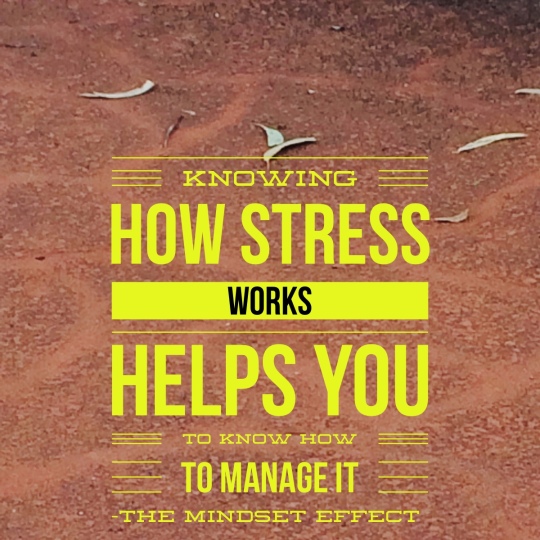Celebrations and stress are not usually words we see together. However today they are. Because today, we made it!
It is officially November 30, 2014. Which means that this is the final day of the NaBloPoMo challenge, and our series on stress.
And the National Blog Posting Month has definitely been a challenge! Probably not in the way most people would think, though. I had no trouble at all coming up with the post ideas and writing the material. Stress is such a huge topic that we could easily go for another month without too much trouble!
Instead, the challenge for me was finding the time to get it all done with the other responsibilities in my life. But I’m so glad that I had the opportunity to do it. The experience has stretched me to think about some things (including my own stress) in a different way.
It has drawn lots of new readers to our small corner of the internet and as they share their stories I find my passion for The Mindset Effect renewed. It’s people like you guys who keep me doing what I do. I love sharing my knowledge with the aim of supporting all of you to make positive, healthy changes in your life. At the end of this post, as a special something for all of you who have stuck with me throughout the month, I have a very special treat. I won’t tell you what it is right now (and no cheating by scrolling!); it will be waiting for you when you get to the end. 🙂
After such an intense month and 29 different articles on stress, I’d like to revisit some of the main concepts and bring it all together for you. I know that sometimes receiving so much information can be a little overwhelming and difficult to understand. So let’s see what we can do …
We began the month with a few simple definitions of the different types of stress before we discussed the pretty grim impacts it has on our mind, body and emotions. With any type of force, strain or pressure, and the possibility of conditions such as weight gain, heart issues, diabetes and blood pressure, it becomes really important to be aware of your stress and to learn to manage it effectively.
I believe it’s equally important to understand how stress works. If you understand it, you’ll be armed with heaps of knowledge that supports you to implement the simple management strategies that we know really work. You’ll have the science behind why you do things like reach for the chocolate bar, cry for seemingly no reason or snap at your partner. And you’ll also have the reasons behind why you feel some pretty mean neck and shoulder tension or why you crash at the end of the day or week and can’t bring yourself to even get out of the chair.
The neurobiology behind stress is extremely complex. I won’t go into that here but you can go back and read any of those earlier posts on the Triune brain, trauma, hormones and the amygdala. Between them, they explain the workings of our inbuilt survival mechanism and why many of our reactions occur.
The stress response, or our fight/flight mechanism, is activated easily and frequently by all manner of life events, from watching someone you love draw their last breath, to dealing with screaming kids or seeing the bills pile up when you have a limited income. And with the buildup of hormones like adrenalin and cortisol, managing the fallout from these events becomes even more important.
Children are also impacted by stress in the same way we are, but their experience is different due to the development of their brains being incomplete. They need guidance in some of the same simple techniques we use.
Probably the most important and effective management strategy is the use of breathing. My friend and colleague, Linda, did a great job of explaining how to utilise belly breathing to down-regulate the stress response.
We’ve also explored sleep, movement, food and laughter and how these are all related to or impact our stress. And we learned how simple routines and small changes can make a big difference in the way we experience it.
With such a complex system and so many things feeding into the impacts we feel, it’s important that we are able to break it all down into bite size pieces and make the way we manage stress work for us in our day to day life. Learning to listen to our mind and body and understanding the meaning of the signals they give out, means we can become more aware of how we respond to stress and this assists us to figure out how to manage it.
As a special treat to you all for your support this past month I would like to provide you with a bonus. I know from first-hand experience that listening to those stress signals is not always easy. In fact, it can be a downright nightmare! Especially given how chaotic our minds can be when we are in the midst of it all. So I would like to provide for you an audio file with 2 of the simple techniques we have discussed previously. This is called guided imagery. I’ll first take you through a simple breathing strategy similar to the belly breathing Linda talked about. I’ll then extend on this and guide you through a body scan, which will help you listen to, connect with and become more aware of the signals your body gives you.
To prepare to listen, find a quiet place and make yourself comfortable, preferably lying flat on your back with your hands loosely by your sides.
I’d love to hear how you go with it when you try it! Please feel free to let me know below.
Before I close up this series, I’d like to thank a few people. Firstly to my friend and colleague Linda, for sharing her passion and skill in the articles she provided on sleep and the role of breathing. I’d like to thank my friend Libby, for helping me brainstorm for the post on listening to our bodies. I’d also like to thank Julia and Carlie who provided articles on their personal experiences with stress. Hearing personal stories can help us understand that other people feel the way we do. We aren’t alone in feeling stressed. Lastly, I’d like to thank all of you who read my words and stick around to read more! Without you, there would be no point me writing and sharing all the stuff in my brain.



Tell us what you think,